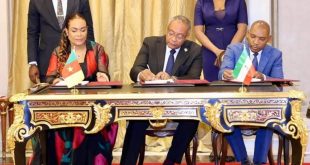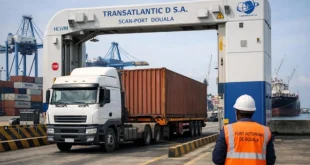WUSA9 | HYATTSVILLE, Md. — Afghan and Cameroonian immigrants stood together Tuesday at CASA’s headquarters in Hyattsville to face a problem they share. In just a few weeks, the Temporary Protected Status (TPS) of both groups will be terminated by the Department of Homeland Security.
Now, they’re hoping the courts will reverse that decision.
On May 7, CASA sued the Trump administration, calling the termination orders unlawful. On Tuesday, the advocacy group announced that a hearing took place where it presented its case in front of a judge, and their ruling is expected to come down in a few weeks.
“TPS gives us the chance to live and work without fear of deportation, and for us, TPS for Cameroon has been personal,” said CASA’s legal director, Ama Frimpong.
In early June, the federal agency put out a notice saying that Cameroon’s TPS status would be revoked Aug. 4, claiming that Secretary of Homeland Security Kristi Noem determined Cameroon no longer met the requirements. One Cameroonian immigrant identified as “A.F.”, says he couldn’t disagree more.
“Why would you say that people who’re fleeing an armed conflict should go back to that situation?” he asks.
A.F. fled Cameroon with his wife in 2023 to escape a civil war that’s been going on for nearly eight years, a war that he says took his brother and sister. Now, he’s learning that he may be forced to return to the horrors he tried so hard to escape.
“I’ve been an activist,” he said. “I’ve been trying to help, and raise a voice about the things that’re now happening, so now I’m even more exposed.”
In May, Noem made the same determination for Afghanistan, with that status set to expire July 14.
Arash Azizzada has lived in the U.S. for the past 24 years, and advocates for Afghan refugees. He says many aren’t just persecuted for their ethnicity or religion, but also their connection to the U.S.
“The country is dangerous because America had a 20 year long war there, it helped set the conditions there,” Azizzada pointed out. “It’s quite hypocritical, and I think a really painful policy decision by the hands of the Trump administration and the Department of Homeland Security.”
 CameroonOnline.org Cameroon news, Actualité Camerounaise, live Web TV & Radio, World News and a lot more
CameroonOnline.org Cameroon news, Actualité Camerounaise, live Web TV & Radio, World News and a lot more




